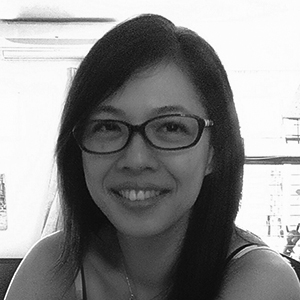Most educated, middle-income and urban Malaysians would baulk at the mere suggestion that they were racist, and in fact many of us would be seriously offended at the very insinuation that we could be prejudicial against another person based on his or her ethnicity or religion.
 But the fact that most of us are children of racially-divisive policies which have defined most aspects of our lives, from the economy to our education, has made our minds a breeding ground for prejudice and intolerance.
But the fact that most of us are children of racially-divisive policies which have defined most aspects of our lives, from the economy to our education, has made our minds a breeding ground for prejudice and intolerance.
As much as most of would like to deny it, the seeds of racism have been planted in our subconscious by the fact that much of life has been experienced and viewed through race-tinted glasses.
So while many of us are far removed from the "public images" of racism like the KKK, or some red-shirts closer to home, racial discrimination also appears in a more covert form, one that is disguised as more socially acceptable actions and thoughts.
Covert racism isn’t the loud, brash thugs spewing hate-filled racist slurs, it begins with the professional sitting in a cushy air-conditioned office who just cracked a racist joke about the Malay, Chinese and Indian guy at a mamak restaurant.
And it begins with a subconscious that segregates people, issues and problems in a racial perspective.
I recently spoke to a Malaysian who had been living abroad for almost a decade with his family. He was highly successful and was obviously enjoying the way of life in his country of residence where his children go to national schools and he pays his taxes dutifully.
As he started sharing about how much he had retained of his Malaysian identity, I asked him what it was like being ethnic Malay, working and living in a country where he was the obvious minority. Did it feel any different from working back home in Malaysia, and did he ever feel he was the victim of racial discrimination, I asked.
After a few seconds of silence, he apologetically stated that he was stumped by my question.
“Don’t get me wrong, I’m not offended in the least but I’ve just not thought of things in that light for a long time,” he chuckled.
“We all have work issues, anywhere we are, but I just approach them as problems that need resolving.”
Ironically, the only time he is reminded about matters about his race and the politics of his religion, are relegated to things he reads about from Malaysian newspapers and news sites.
I will be the first to admit to being guilty of dissecting much of life’s issues in Malaysia through a racial lense. The chat with my friend really showed me that if we were to put ourselves in an environment that pays no attention to your colour or religion, we would see how myopic our current worldview has become.
Talk about a superior race, politicians claiming to defend the interest of only certain communities or assertions of one religion’s dominance over others are all things that appear to matter only in our little “kampung”.
At a recent interview with Talentcorp CEO Johan Merican about the brain drain problem, a question was posed about the racial makeup of Malaysians who have left the country to seek better fortunes.
Johan’s reaction was a quick and terse retort that the problem had very little to do with race, and more to do with the income level and exposure of those who emigrate.
And then he finished with an answer I will remember for a long time to come – isn’t it about time we stopped looking at things from a racial prism?
I left that day agreeing with him on that one point. Wouldn’t it be nice to truly be able to see life through a global perspective, without the racial lenses?
Many Malaysians yearn for a change; some for a change in the political landscape but most of us for a change in the racially strained society our children are growing up in now.
But we often fail to recognise the role we play, no matter how covert, in either keeping the status quo, or bringing about that change.
The next time you feel tempted to tell that "harmless" racist joke, stop yourself.
The next time you read an article in the newspaper or online that gives racist politicians, NGOs or personalities the time of the day they don’t deserve, make it clear to that publication that you do not appreciate cheap sensationalism that further fires up racial sentiments.
Because if we really want a transformation in Malaysia, we have to start with the hardest part to change – our minds. – October 25, 2015.
* This is the personal opinion of the writer or publication and does not necessarily represent the views of The Malaysian Insider.


Comments
Please refrain from nicknames or comments of a racist, sexist, personal, vulgar or derogatory nature, or you may risk being blocked from commenting in our website. We encourage commenters to use their real names as their username. As comments are moderated, they may not appear immediately or even on the same day you posted them. We also reserve the right to delete off-topic comments